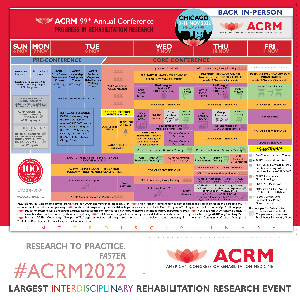Back
Oral Presentation
Technology (e.g. robotics, assistive technology, mHealth)
Acceptability of In-Home Ambient Sensors for Activity Recognition and Assessment Post-Stroke
Wednesday, November 9, 2022
3:15 PM – 3:31 PM

Rachel M. Proffitt, OTD, OTR/L
Associate Professor
University of Missouri
Columbia, Missouri, United States
Presenting Author(s)
The purpose of this pilot study was to explore the acceptability of an in-home ambient sensor for activity recognition and assessment post-stroke. The DNS-6 depth sensor (Foresite Healthcare) was installed in the kitchen of 17 participants post-stroke for 3 months. All participants reported some difficulty using their arm in everyday activities. Semi-structured interviews were conducted with each study participant at the end of the 3-month period. Despite any unfounded privacy concerns, all participants were able to understand the anticipated benefits and clinical implications of this sensor. They all seemed to approve the removal of some aspects of privacy for the tradeoff of improvement of rehabilitation therapy services. Future research will integrate the depth sensor and developed algorithm into a larger home-based sensor system for individuals post-stroke and other conditions.
Learning Objectives:
- Describe the acceptability of ambient sensors by the stroke population
- List concerns individuals receiving rehabilitation services may have regarding privacy of technology in the home
- Weigh the benefits of technology in the home against privacy concerns

.jpg)
